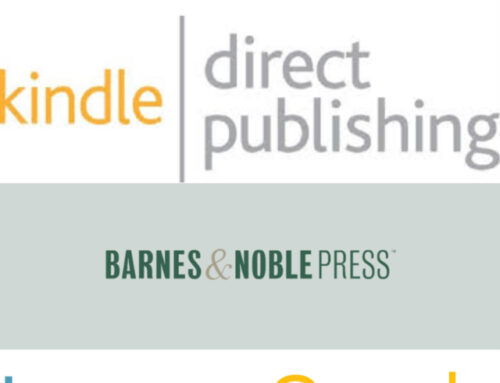
Leaning a little about search engine optimization or SEO can help.
SE-what, you ask? Some strange computer virus?
No, nothing so scary. Let’s take a look at the basics.
What Is SEO?
Search Engine Optimization is the art of making your site/blog seem particularly useful and important to Google, so it’ll list your pages higher than those of your competitors (you know, those other evil authors out there…).
When people use search engines, they type in terms or “keywords” (these can be single words, but they’re more often combinations of words). The search engine attempts to deliver the most relevant results by looking at a number of factors:
- How often those keywords are used on a webpage or blog post (ie. it helps you if the terms are used in the title, text, and web address).
- Links from other sites, especially links that use those keywords in the “anchor text” (the clickable underlined words).
- Overall age, popularity, and authority of a site (authority is determined by the number and quality of links pointing to a site)
The important thing to remember is that employing SEO techniques to your blog posts can help bring you more visitors from Google, Yahoo, Bing, etc., visitors who might go on to check out those rather interesting-looking books over in the side bar….
How do you know which keywords people are using?
Excellent question. You can play around with the Adwords Keyword Tool (it’s free) to get ideas. Here’s a YouTube video on how to use the tool to research keywords.
How do you employ “SEO techniques” on your author site/blog?
There are two major things you can do that will help a lot:
1. Set your site up so it’s “SEO friendly”
Earlier I mentioned that the search engines look at the title, web address, and page content when determining how highly an article should rank for its particular keywords. So, we want to have good titles, addresses, and content.
If you haven’t chosen a domain name (a yourcoolname.com address) yet, you may want to work your main keyword into it, especially if your plain old name is already taken. An example might be SarahDoeMysteryNovels.com or TJHemlockThrillers.com. Don’t go overboard, though, or do anything too long as you want people to be able to remember your web address.
In my case, I just used myname.com since it was available and the spelling troubles people (I didn’t want to make anything more difficult), but I would have gotten more SEO benefit from MyNameFantasyNovels.com.
When it comes to writing specific pages or blog posts, you’ll want to focus on some of your minor keywords (for example, I write steampunk as well as high fantasy, so I did a blog post on “Must-Read Steampunk Books” where “steampunk books” was the keyword I’d decided to work on–one I came across while browsing “steampunk” with the Adwords Keyword Tool. Now I get some Google visitors coming to my site, specifically that article, after searching for steampunk books (and every now and then one of them checks out my steampunk stories). The great thing about SEO is that this will be the case for months and years to come.
2. Get links to your site
“On page SEO” (the stuff you do on your site) is only half the battle. You also need to get links from other sites, preferably popular, well-established sites.
The search engines know that people link to things that are useful or entertaining, so they can judge the quality of a site by the number of links (kind of like votes) it has received. The more links your site has, the more likely search engines will consider it an authority and rank it well in their index.
So, how do you get these links? Eventually, you’ll get popular enough that they’ll come naturally (you’ll have followers waiting and watching for you to put up new stuff they can talk about), but in the beginning…you have to hustle to get them. I just started a new site on self-publishing, so I know all about starting from scratch!
One method of acquiring links is through guest blogging. This is where you write posts for other people’s blogs and they trade you a link back to your site (and you can usually work in your book pages at Amazon, B&N, etc. too). It’s a win-win situation because the blogger gets free original content, and you get links (ideally from a site more popular and established than yours).
If you’re active on social media as well, you can promote your blog posts on Twitter, Facebook, etc., (the best thing is when others share your links with their friends).
There are other ways to get links, but this article is getting long, so I better stop before your eyes glaze over (too late, you say?). At the least, I hope you have a better understanding of what the heck this “SEO” stuff is now.
Thanks for reading!
Get an Editorial Review | Get Amazon Sales & Reviews | Get Edited | Get Beta Readers | Enter the SPR Book Awards | Other Marketing Services






















Page Load Speed (and mobile adaptability) are biggies for Google now, too. If your site is bogged down due to bad coding, huge files, Flash loaders, etc, it will damage your SEO.
Thanks for the comment, Brian. Yes, those authors with a bazillion widgets on their Blogger blogs may want to clean the clutter a bit! 🙂
Really good article. I have got a question. As
a web-site owner, just how long did it take for your web-site to become successful?
Likewise what do you enjoy most about running a blog?